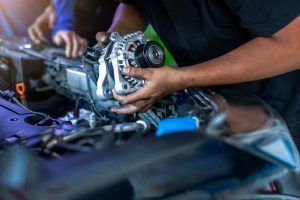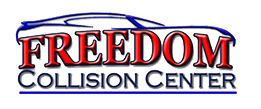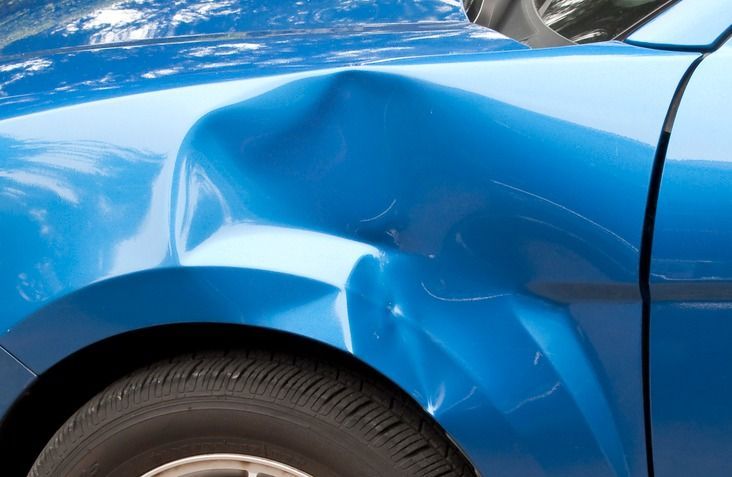Can Aftermarket Parts Affect Your Car's Resale Value? Here's What WV Drivers Should Know
If you’re thinking about selling or trading in your vehicle, it’s natural to focus on things like mileage, cosmetic condition, and maintenance records. But there’s another factor that can quietly influence what your car is worth: the type of parts used in any past collision repairs.
 Whether you’ve just had body work done or are weighing your options after a fender bender, it’s worth understanding how aftermarket versus OEM (Original Equipment Manufacturer) parts can affect resale value, especially here in West Virginia, where trade-ins and used car purchases are common.
Whether you’ve just had body work done or are weighing your options after a fender bender, it’s worth understanding how aftermarket versus OEM (Original Equipment Manufacturer) parts can affect resale value, especially here in West Virginia, where trade-ins and used car purchases are common.
At Freedom Collision Center, we often speak with drivers who are surprised to learn that something as routine as a replacement bumper or headlight assembly could change how dealerships and buyers perceive their vehicle. This guide is designed to walk you through the key considerations so you can make confident choices.
Why Resale Value Matters After a Repair
When your car has been involved in an accident, even a minor one, the effects often go beyond the visible dents and scrapes. A vehicle’s resale value is tied to its appearance and mechanical performance as well as its repair history. When purchasing a vehicle, buyers and dealerships often look at the repair history closely.
If you plan to sell your car privately, a buyer might request a vehicle history report and ask follow-up questions about any previous damage or repairs. If you’re trading it in, dealership appraisers will almost certainly inspect past repairs and factor that into their offer. Those returning a leased vehicle could even face end-of-lease penalties if the car has been repaired using non-manufacturer-approved parts.
In all of these scenarios, the quality of the parts used in a collision repair can either protect or diminish the value of your car. That’s why it’s so important to be informed about what’s going into your vehicle after a crash, not just for your safety, but also for your long-term financial outcome.
Understanding Aftermarket vs. OEM Parts
When your vehicle needs body work or mechanical repairs, the shop handling your car typically chooses between two types of replacement parts: OEM or aftermarket. OEM parts are made by the same manufacturer that built your vehicle and are designed to match its exact specifications. This means they’re generally identical in quality, fit, and performance to the parts that came with your car when it was new.
Aftermarket parts are produced by third-party companies not affiliated with the car’s original manufacturer. While many aftermarket parts are of excellent quality and functionally acceptable, their fit and finish may vary. Some may not align as precisely with your car’s existing body panels, while others may wear out faster or require adjustments to install correctly, which is why they typically cost less.
From a repair standpoint, there’s no universal answer to whether aftermarket parts are “bad” or “good,” but when resale is a priority, the details matter. Even if the repair looks flawless on the outside, what’s underneath could impact later on.
Do Aftermarket Parts Show Up on Vehicle History Reports?
Many West Virginia drivers are familiar with Carfax, AutoCheck, and other vehicle history reporting services. These tools have become standard for dealerships and private buyers who want to verify a car’s background before committing to a purchase. What you might not know is that some of these reports include detailed information about collision repairs, including the type of parts used.
If your vehicle has been repaired at a shop that reports to Carfax or similar platforms, the report may indicate whether OEM or aftermarket parts were installed. Even if that level of detail isn’t explicitly stated, savvy buyers and appraisers often use repair records or visible clues to make inferences.
For example, if a front-end repair involves a headlight that doesn’t quite match the original or a slightly uneven fender, it could be a sign of aftermarket replacement. Beyond aesthetics, buyers may worry about long-term durability, compatibility, or even structural integrity.
Ultimately, while aftermarket parts don’t automatically appear on every vehicle history report, their presence can still leave a trail. That trail may influence how much someone is willing to pay for your vehicle.
How Dealerships and Appraisers View Aftermarket Repairs
When you bring your car in for a trade-in, the dealership’s appraisal process usually involves a close inspection of its condition and repair history. This isn’t just about looking for scratches or checking tire tread. Appraisers are trained to spot signs of past body work and may ask questions about what kind of repairs were made and which parts were used.
If your vehicle has been repaired with OEM parts and the work was done to factory standards, you may retain more of its value, especially if it’s a newer model or still under warranty. On the other hand, aftermarket parts can raise red flags for appraisers, even if the car looks fine. Why? OEM parts are considered a closer match to the vehicle’s original build, which translates to better reliability and consistency.
In some cases, vehicles with noticeable or documented aftermarket parts can receive a trade-in offer that’s 5–10% lower than expected. This can be especially impactful for leased vehicles, where the use of non-OEM parts could result in penalties or reduced buyout offers.
For drivers in the Morgantown area and beyond, understanding how dealerships evaluate repairs is essential to protecting your investment, especially if you’re planning to upgrade your ride soon.
When Aftermarket Parts Are More Acceptable
While OEM parts are typically preferred to protect resale value, there are certain situations where aftermarket parts make sense and won’t necessarily hurt your bottom line.
For older vehicles or cars with high mileage, the return on investment for OEM parts may not justify the cost. If you’re planning to drive the car for a few more years and aren’t concerned about top-dollar resale, a well-made aftermarket part can be a practical choice. This is also true for cosmetic repairs, such as replacing a cracked mirror or scuffed bumper, where structural integrity isn’t a significant concern.
In addition, many insurance policies now include language that authorizes or even requires the use of aftermarket parts to keep repair costs manageable. In those cases, it’s still worth discussing your options with your repair shop. At Freedom Collision Center, we’re always transparent about the parts we use and can help you decide what makes the most sense for your vehicle and budget.
Regardless of which option you choose, clear and honest communication is key. Documenting the repairs and being honest with potential buyers can go a long way in maintaining trust and avoiding price reductions.
The Case for OEM Parts to Protect Your Investment
If you want to maximize the value of your vehicle, either now or in the future, OEM parts are the best option. Because they’re made by the same company that built your car, OEM parts tend to offer superior fit, finish, and functionality. This can lead to better performance, longer life, and fewer issues down the road.
From a resale perspective, OEM parts often signal that the vehicle has been well cared for and repaired to a higher standard. This can give buyers more confidence and help you gain a better offer from dealerships. OEM parts also typically come with warranty protection, which adds another layer of security for future owners.
At Freedom Collision Center, we understand that every driver’s situation is different. That’s why we work closely with you and your insurer to ensure the best possible outcome. Whether you’re aiming to protect resale value, maintain manufacturer warranties, or want the best for your car, we’re here to help you make informed decisions.
Protect Your Resale Value by Calling Freedom Collision Center Today!
When your car needs repairs after an accident, it’s easy to focus on getting it back on the road. But if you think you might sell or trade in your vehicle someday, the decisions you make today about which parts to choose can have a lasting impact on its value.
Choosing a trusted auto body shop in Morgantown and asking the right questions about OEM vs. aftermarket parts is a simple but powerful way to protect your investment. And if you’re not sure where to start, we’re here to guide you.
Contact Freedom Collision Center today for a free consultation or estimate.

Recent Posts


